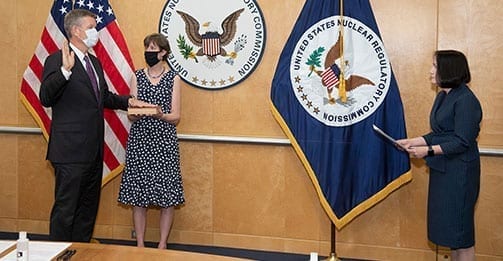
RadWaste Monitor Vol. 13 No. 24
Visit Archives | Return to Issue PDF
Visit Archives | Return to Issue PDF
RadWaste & Materials Monitor
Article 1 of 10
June 12, 2020
NRC Prepares to Return Staff to Offices

Staff at the Nuclear Regulatory Commission will next week begin returning to their offices after months of near-total telework due to the COVID-19 pandemic.
Ninety-eight percent of the federal agency’s nearly 3,000 full-time employees have been working remotely…
Partner Content